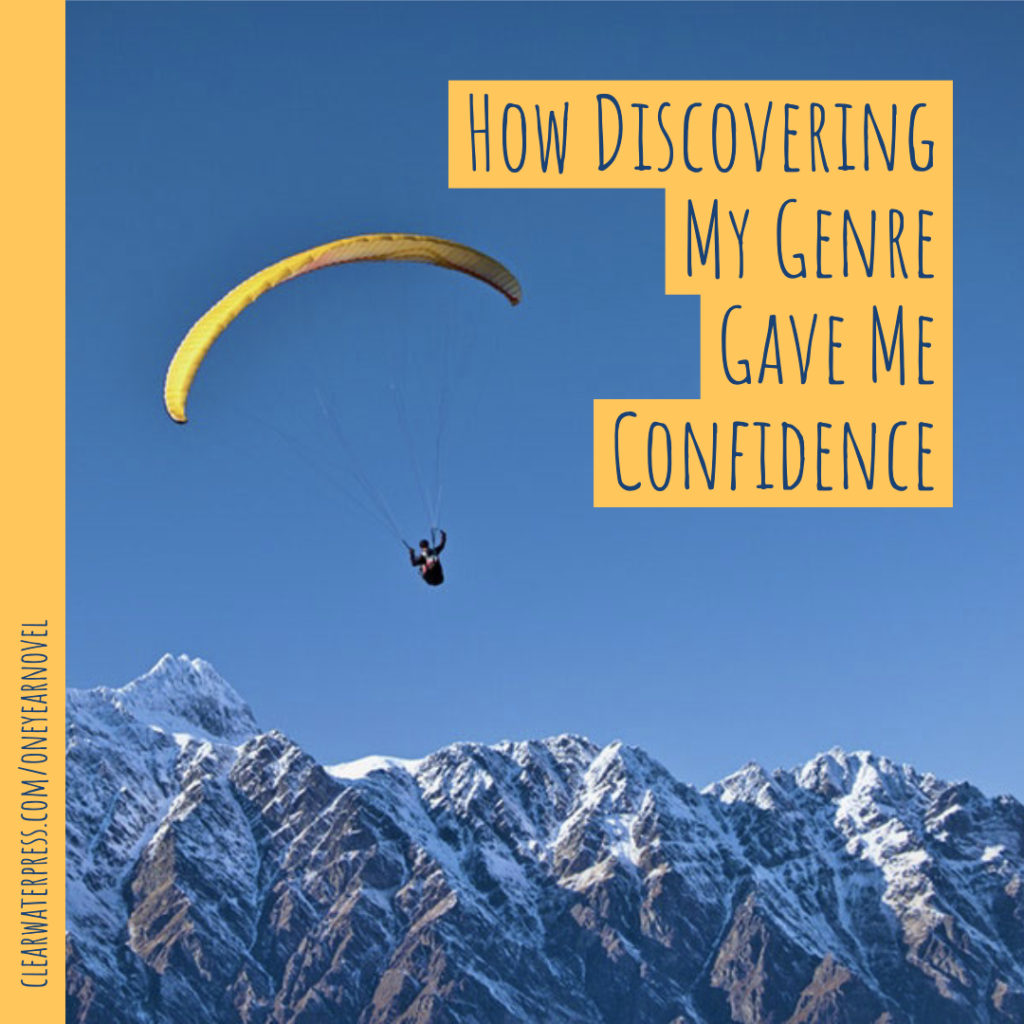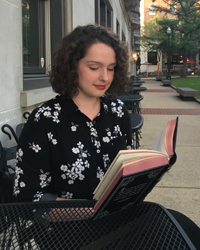How Genre Gave Me Confidence
By Meredith Lundell, Student Contributor

Did you know that “family saga” is a genre of literature? I didn’t until last month when a research project sent me into the world of literary agents. When I saw “family saga” listed among the genres a particular agent was interested in, it was the quintessential “light bulb” moment for me. I’ve been writing variations of family sagas for years, but didn’t have a way to describe what I wrote. To say I was excited would have been an understatement.
See, I’ve spent most of my serious writing life as a “not-quite-this-genre” writer. The first novel I completed was dystopian, but it’s not that kind of dystopian. At one point I described one of my novels as a sci-fi murder mystery, which still wasn’t completely accurate. Granted, I’ve written
stories (mostly short stories) that are just one or two genres. But when it came to my larger aspirations, it was like I was attempting to build a house from a pile of items stolen from other genres: windows from mystery, porch posts from sci-fi, roof tiles from dystopia, a rug from action, a bucket of paint from drama. Could those elements eventually come together into a legitimate and interesting story?
It also seemed, of course, that no other writer I knew had this problem. People wrote fascinating characters, tried out unique formats, and decided to forgo traditional storytelling rules—but all within genres that were well-known and well-loved. Authors garnered lots of fans who pick up
their story because of the genre posted at the top of the description; they recommended new books that also fell into their favorite genres, and those books became popular. But then there was my string of adjectives—where did it belong? Or, rather, where did I belong? I never felt ashamed of what I loved to write, but I didn’t want to feel isolated either.
That’s where genre came in: first, learning the difference between literary and commercial fiction, and then finding out about family sagas. From what I understand, literary fiction focuses on the art or theme of the story while commercial fiction focuses on the characters and readability of the story. Neither one is inherently bad or lesser than the other—their goals and focuses are simply different. But I had spent years attempting to fit myself into the category of commercial fiction when all along I wanted to write literary fiction. I felt out of place because I was, but I had put myself in that position by not exploring the possibilities.
I realized that many of my favorite stories were literary; I realized that there was a whole world of literature from all time periods that I had never tapped into; and I realized that “literary” was the key word missing from my list of adjectives. The category of “literary fiction” was like a box perfectly designed to store all of my sundry adjectives. Once I didn’t feel the pressure to write like other authors, I felt free to pursue a different path. And, I was free to love commercial fiction for what it was meant to be instead of what I wished it was. The angst I had felt, even around my writer friends, disappeared.
Then I happened upon the term “family saga” during that research project I mentioned. My curiosity was piqued—it sounded so familiar, but why hadn’t I heard of it before? One Google search and I realized that I’d found the missing item for my collection. I had been writing family sagas or variations of the genre for years! I always described it as “like if you took a television drama and put it down in book form.” Now, I not only had an easier way to describe it to others, but I had examples to show them too.
However, I learned something far more substantial throughout this genre journey: even if I hadn’t found genres that fit my stories, my stories were still valid and interesting. I had been too caught up in comparing myself to other writers and had bought into the lie that what I was creating wasn’t good enough because a few people around me didn’t want the same thing. But that clearly isn’t true. It’s pure silliness and pride to look at a world brimming with art and filled with history and think I’m the only one who likes a certain thing. That was made clear to me when I found the genres that I love most and saw how many other people loved them too.
One of my favorite writing quotes is by C. S. Lewis: “Write about what really interests you, whether it is real things or imaginary things, and nothing else.” The popularity or conventions of a genre aren’t what make a good story—the passion and joy of the author do. In fact, a good story crosses over genres. So the genres that I found and love so dearly now are not names to drop, badges to display, or labels to divide the good stories from the bad ones. They are tools to help us understand the stories we have. They are seeds of camaraderie. They are reminders that we aren’t alone.
Finding my genres gave me confidence—now it’s my job to use them as tools to grow my writing journey.
…
How has genre influenced your writing?
…

Meredith is an author, blogger, and bookstagrammer who aims to create novels the size of War and Peace—though, in the meantime, she’ll settle for short stories, poems, and binders full of worldbuilding spreadsheets. She’s been a part of OYAN for over seven years and has attended four workshops. Other than her undying love for classic novels, she enjoys pretty book covers, birds (especially mourning doves), red lipstick, Oxford commas, biological sciences, admiring old architecture, enjoying the arts, making puns, and watching crime dramas with her family. You can find her at her blog, amerestory.wordpress.com, or her Instagram, @amerestory.
* Please note that links on The One Year Adventure Novel Blog to other websites and blogs do not constitute an official endorsement. We are not intimately familiar with all the writing and opinions contained in outside links.


